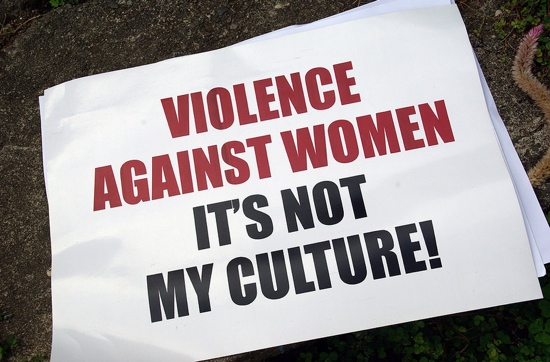VCU student serves on McAuliffe’s campus sexual violence task force
How often do VCU students discuss sexual violence prevention, and how might the task force change things at Virginia universities?

Mere days after the White House launched the It’s On Us campaign to stop sexual assault on college campuses, Gov. Terry McAuliffe announced the members of his new Combating Campus Sexual Violence task force.
The task force–led by Attorney General Mark Herring and comprising 30 individuals representing law enforcement, medical workers, college administration, student government representatives, and others–will issue a final report to the governor’s office no later than June 1, 2015.1
“As the parents of five children, two of whom are in college, Governor McAuliffe and the First Lady take this issue very seriously, and the actions the governor took show that Virginia will not tolerate sexual violence at its institutions of higher education,” said Rachel Thomas, the governor’s press secretary in an email to RVANews. “The governor believes the only way to tackle this issue is to work in a collaborative way where the university and college communities can share best practices with each other and work with experts in the field and law enforcement officials.”2
One member of the task force is Brandon Day, president of the VCU Student Government Association, and one of only two Virginia SGA members participating.3
“It’s obviously a huge honor. But I think with that, it’s a big burden having to represent a 32,000-plus student body,” Day said by phone last week. “I am excited that we finally get an opportunity to sit down and tackle this issue.” Until now, sexual violence was only the victim’s issue. “Now we’re saying this is everyone’s issue. This is everyone’s problem.”
Day learned of his task force involvement about three weeks ago after he was recommended for the post through VCU’s Office of Student Affairs. He said the task force will meet downtown for the first time this Thursday. “It’s kind of been everyone’s preliminary goal [to understand] who they’re representing and what they can bring to the task force,” he said. “My initial goal and expectation is that I am able to represent the student voice on this concern.”
While lauding VCU’s institutional efforts to provide students with resources to prevent (PDF) and report sexual violence, Day believes discussions of sexual violence and its prevention are on the back burner of student minds. “Because it can sort of be a taboo or hot topic, so people don’t really know how to engage with it.”
Lacking that discourse is one reason why women don’t report being victims of sexual violence. Rachel Thomas at the governor’s office said the task force will address this. “As we know, reports and statistics of sexual assault are often underrepresented due to lack of reporting,” she said. McAuliffe wants specific recommendations to create academic climates “where individuals feel comfortable approaching their schools or their local law enforcement officials.”
According to VCU Police data (PDF), in 2013 there were 11 sex offenses reported in and around Monroe Park and MCV campuses.
Day hopes the task force and subsequent changes that result from it will help foster local discussion. “VCU is going to have to take part in a state-wide, and eventually a national, dialogue about this issue because whether or not it’s something that heavily impacts our campus…it happens regardless,” he said. “This is a great opportunity, not only the people who have been impacted or could be impacted, but really to get everyone involved in this dialogue.”
Day’s optimistic about the task force’s eventual contribution to fight sexual violence on Virginia campuses. “I think something really positive is going to come out of this, and I do think it’s going to make campuses all across the state a better place to be.”
Related
- Gov. McAuliffe forms task force to combat sexual violence at Virginia colleges; Washington Post
- White House recruits stars for ad against campus sexual assault; Guardian
Photo courtesy of Department of Foreign Affairs and Trade
- McAuliffe may also request additional reports and information from the task force. ↩
- Thomas underscored that all public universities and the community college system recently signed a Joint Declaration that requires all high-ed schools to provide mandatory training in combating sexual violence by Fall 2015. Like the White House campaign, the Joint Declaration includes bystander intervention, which will encourage students who witness a disturbing situation to intervene before an offense happens. ↩
- The other is Christopher Ndiritu at ODU. ↩
-
Recommend this
on Facebook -

Report an error
-

Subscribe to our
Weekly Digest





Notice: Comments that are not conducive to an interesting and thoughtful conversation may be removed at the editor’s discretion.